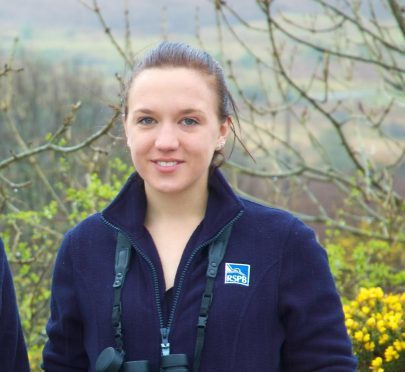A Marine conservation researcher from the Isle of Skye has travelled across the ocean to learn about whale entanglement after winning a prestigious fellowship award.
Ellie MacLennan, 31, travelled to both the east and west coast of America and the east coast of Canada to work with the busiest whale disentanglement teams in the world, in a bid to replicate their good work in Scotland.
The six week trip was part of her fellowship, awarded by the Winston Churchill Memorial Trust.
Miss MacLennan said: “I have gained a much better insight into the successes, failures, tragedies and challenges within this, than I ever could have achieved through desk-based study.
“As a result I have built up a fantastic network of contacts, gained confidence and hands-on practical experience in whale disentanglement, a much deeper understanding of the complexities of this issue, and developed a whole new skills set which I now hope to put to good use here in the UK.”
Fellowship Director for the Winston Churchill Memorial Trust, Sara Canullo, said: “Ellie is a volunteer dedicated to disentangling whales. Her passion and commitment, as well as her experience of wildlife conservation gained on the Isle of Skye, made her an ideal candidate for our funding. The recent Blue Planet series showed how gravely humans threaten marine life. We are confident Ellie can make a valuable contribution to marine conservation in the UK.”
As well as spending time with disentanglement teams, she also met representatives of federal agencies, fisheries and conservation organisation and scientists and engineers from research facilities, all of whom were actively involved in finding ways to prevent the problems.
As a member of the UK’s largest whale disentanglement team, Miss McLennan now hopes the UK can learn from the trials and tribulations taking place across the ocean.
She added: “In the UK we could and should now learn from the work being done in the USA and Canada, particularly what has and hasn’t been successful and why. Firstly, a better understanding of the true extent of the entanglement threat is needed here through improved reporting of entanglement events, and subsequent data collection on the nature and location of these.
“Nobody wants to see whales get entangled but to prevent these incidences from occurring and effectively resolving them when they do, adequate funding, open communication, empathy and expertise for and from all interest groups is essential.”
